Foreword
2021 proved to be another challenging year as the Covid-19 pandemic continued to undermine public health services, while the Taliban takeover in Afghanistan in August and new and ongoing conflicts elsewhere had a devastating impact on human rights protection.
This not only meant an increasing risk of conflict-related sexual violence (CRSV) in many settings, but for victims/survivors of this heinous act, access to the often already scarce medical, health and other vital care and support, became ever more difficult.
ASP sought to adapt its work to meet these new challenges. In Afghanistan, our first priority was the safety of our national partners and others who had worked so closely with us on this sensitive work in recent years, including supporting evacuations where needed. Like many other INGOs, we were forced to temporarily suspend projects in Afghanistan, although we were able to resume a limited programme of work at the end of the year on capacity building for htealthcare providers responding to male victims/ survivors of sexual violence. We also conducted remote research to try to establish the implications of the Taliban takeover for the risks of CRSV to men, boys and people of diverse sexual orientations and gender identities. We were deeply concerned by the Taliban’s closing down of ASP’s long-term partner, the Afghan Independent Human Rights Commission, one more step in the rapid roll back of human rights protections in the country.
Our work on access to justice for male victims/survivors of sexual violence in the context of the armed conflict in Colombia progressed. We were particularly pleased to be able to work closely with a group of male victim/survivors who had taken the courageous decision to go public with their experiences in pursuit of justice for themselves and the broader universe of victims/survivors. Both in Colombia and elsewhere, ASP sought to better understand what “survivor-centred” responses look like in practice – whether in relation to justice or health. In Central African Republic (CAR), we put in place plans to roll out research to explore how survivor-centred healthcare responses for male victims/survivors could be strengthened, using methodologies piloted in Afghanistan in 2020 but adapted to the CAR context. In 2021, ASP’s work on survivor-centredness became one of the case studies considered by a thematic working group led by the UN Office of the Special Representative of the Secretary-General (OSRSG) on Violence Against Children to develop an outline for a guidance document titled, ‘Advancing Principles of a Survivor-Centred Approach to the Prevention and Response of CRSV’.
In another exciting development, we began a new partnership with the Office of the Special Representative of the Secretary-General for Children and Armed Conflict, under which we put in place plans for work aimed at building a better understanding of the risks to and vulnerabilities of boys to CRSV. Partnerships, whether new or old, remain fundamental to ASP, helping us to deepen our understanding and learning about the complexities of CRSV in the countries where we work. We remain honoured by the willingness of so many groups and experts to work alongside us.
While the victims and survivors who place their trust in us, and our partners, were key to our achievements in 2021, none of ASP’s work could happen without the generous support of our donors – I would like to extend my thanks to them for continuing to place their faith in us. And of course, my thanks to ASP’s team of staff and consultants.
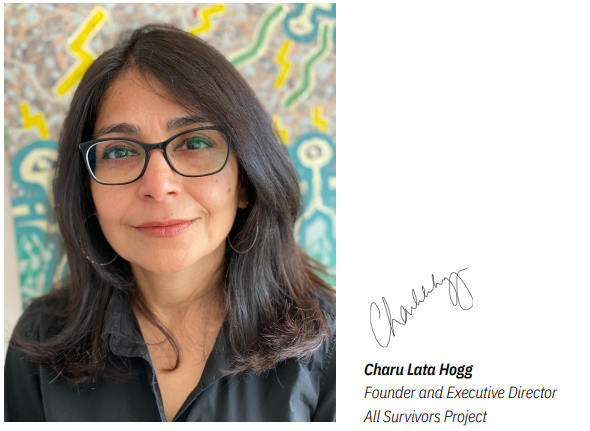
About ASP
ASP’s Vision is of a world where everyone is protected against conflict-related sexual violence (CRSV) and all victims/survivors have access to appropriate and timely care, support and justice.
ASP’s Mission is to support global efforts to eradicate CRSV and strengthen national and international responses to it through research and action on CRSV against men and boys and/including those with diverse sexual orientation, gender identity, gender expression and/or sex characteristics (SOGIESC). [1]
ASP’s Values:
We are:
- Committed to upholding human rights: ASP’s work is guided by international human rights and humanitarian norms and standards; the best interests, dignity and safety of all victims/survivors of CRSV; and principles of non-discrimination.
- Survivor-centred: ASP prioritises the interests and perspectives of victims/survivors, working directly with them wherever possible to inform our research and action and to ensure that their needs and wishes guide efforts to end and respond to CRSV.
- Ethical and accountable: ASP upholds ethical approaches in its research, advocacy and other activities and is committed to being accountable, including to the victims/survivors and partners with whom it works, and to women’s rights organisations working to respond to CRSV against women and girls.
- Independent and impartial: To protect our independence, ASP ensures that all of our funding is consistent with our mission and values. We preserve our impartiality and do not take sides in armed conflicts.
ASP’s Goals & Objectives
2021 was the first year of ASPs first five-year strategic plan (w-2025). Our work was guided by the three overarching objectives adopted as part of the plan:
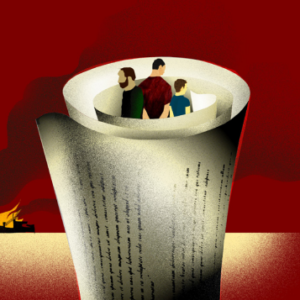
To strengthen measures to prevent CRSV against men, boys and/including people with diverse SOGIESC within broader efforts to eradicate CRSV
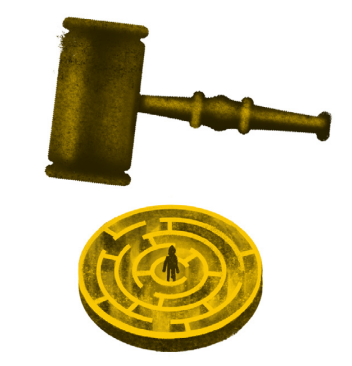
To improve access to justice for men, boys and/ including people with diverse SOGIESC who have been victims/survivors of CRSV.

To improve availability of and access to timely, quality, survivor-centred medical and mental health and psychosocial support (MHPSS) responses for male and/including LGBTI+ victims/ survivors of CRSV.
2021 Highlights
Improving survivor-centred healthcare for male victims/survivors of sexual violence
In 2021 we continued to implement and develop research in our focus countries, Afghanistan, Central African Republic (CAR) and Colombia, aimed at deepening understandings of the needs and wishes of men and boy victims/survivors of CRSV and of the barriers they face in accessing timely, quality, survivor-centred medical care and MHPSS responses.
Key Achievements:
- We published detailed findings of research in Afghanistan that exposed the lack of access for male victims/survivors to healthcare and identified practical measures to overcome the multiple barriers experienced by them.
- We translated these research findings into practical training tools to support health professionals to respond appropriately to male victims/ survivors.
Afghanistan
In March, we co-published a report, Enhancing Survivor-Centred Healthcare Response for Male Victims/Survivors of Sexual Violence in Afghanistan with our Afghan NGO partner Youth Health and Development Organization (YHDO). The report was the product of a 10-month research project during which ASP and YHDO conducted in-depth interviews with nearly 30 male victims/survivors of CRSV and 70 healthcare providers in Balkh, Kandahar and Kabul provinces, as well as with key stakeholders from the former government, UN agencies and national and international NGOs.
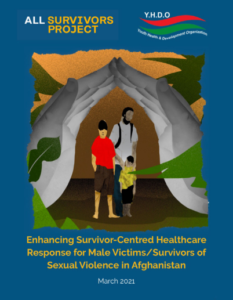
ASP/YHDO found that a range of services and resources had been developed to address the health care needs of victims/survivors of gender-based violence (including CRSV) but that they were largely directed towards women and girls. Indeed, our findings showed that the health sector was vastly underused by male victims/survivors of CRSV due to multiple and cumulative barriers that prevented them from accessing healthcare services.
The ASP/YHDO research identified barriers at multiple levels: Individual – including lack of knowledge about available services among male victims/survivors and how to access them.
- Interpersonal – including fear of being stigmatised by family and community members and of retaliation by perpetrators.
- Community – including unaffordability of transport, fees, medications and other costs associated with accessing healthcare services.
- Organisational – lack of availability of specialised healthcare services for male victims/survivors of sexual violence, lack of expertise and capacity among healthcare providers for addressing the needs and wishes of male victims/survivors, and fear of stigmatisation by and negative attitudes from healthcare providers, including victim blaming, particularly of those with diverse SOGIESC.
- Structural – including laws criminalising same-sex sexual acts, and impunity for perpetrators of sexual violence, particularly for armed and other powerful actors.
Our findings showed that the health sector was vastly underused by male victims/survivors of CRSV due to multiple and cumulative barriers that prevented them from accessing healthcare services.
Based on its findings, ASP and YHDO implemented a series of follow-up activities:
Training/capacity building – ASP/YHDO finalised a set of training tools for healthcare providers in Afghanistan on addressing CRSV against men and boys, including those with diverse SOGIESC. The tools were piloted over June and July with healthcare providers working with YHDO. Plans to implement the training more broadly were put on hold following the Taliban takeover. Nevertheless, ASP/ YDHO were successful in gaining the approval of the de-facto authority’s Ministry of Public Health for a preliminary training in Kabul. The training, facilitated by YHDO medical doctors, took place in December and was attended by 20 doctors and nurses from five hospitals or primary health care centres in Kabul. Requests from participants for follow-up training have since been received and plans are underway to assess further training needs in Kabul and to roll out the training in Balkh and Kandahar provinces.
National advocacy – Prior to the Taliban takeover, ASP and YHDO successfully advocated with the Ministry of Health’s Gender Directorate to include sexual violence against men and boys in the Ministry’s training curriculum for healthcare providers.
International advocacy – ASP co-facilitated or participated in several events aimed at raising awareness among diplomats and donors of the need for gender-competent/inclusive responses to CRSV and of their role in funding or otherwise supporting initiatives to overcome barriers to accessing healthcare for male victims/survivors.
Following the Taliban takeover, we refocused our advocacy on reminding the international community of the heightened risk of CRSV against males and/including people with diverse SOGIESC in an environment where fundamental rights were being eroded and healthcare and other services suspended due to funding freezes.
On 30 November, ASP’s Executive Director presented findings from remote research with human rights defenders in Afghanistan at an event in New York co-hosted by the Canadian, Liechtenstein and UK Permanent Missions to the UN. We highlighted how increased levels of child labour and military recruitment and use of children, the movement of unaccompanied boys across borders, and the arbitrary detention of boys in lieu of parents who worked for or were connected to the former administration and security forces were exacerbating vulnerabilities. [2]
On 2 December, by invitation ASP briefed the US Department of State’s Bureau of Democracy, Human Rights, and Labor in Washington DC on the potential risks to and vulnerabilities of men, boys and LGBTI+ people in Afghanistan following the take-over of the Taliban to inform the US Government’s policy and funding responses.
Central African Republic and Colombia
During the year, we put in place plans for extending our survivor-centred health project to CAR, including through the identification of national partners (Médecins Sans Frontières (MSF)), the development of research protocols and applying for ethical approval from MSF’S Ethical Review Board and the University of Bangui’s Ethical and Scientific Committee. Once research on CAR was underway (scheduled for 2022), a similar planning and set-up process was proposed for Colombia (scheduled for 2022).
Strengthening justice for male survivors of CRSV
Our programme of work supporting access to justice for male victims/survivors of CRSV during the decades long armed conflict in Colombia entered its second year. We focused on strengthening our relationships and building the capacity of the two Focal Groups of Male Victims of Sexual Violence (Focal Groups) that had been set up in 2020 with the support of our national partner Red de Mujeres Víctimas y Profesionales (Red de Mujeres – a network of women victims of sexual violence).[3] At the same time, we continued to encourage and support national transitional justice institutions, notably the Special Jurisdiction for Peace (SJP) and the Truth, Coexistence, and Non-Repetition Commission (Truth Commission) to apply a gender-inclusive approach to its investigations, analysis and report on to CRSV.
In parallel, we worked with the Focal Groups and with Red de Mujeres to begin the lengthy and sensitive process of analysing incidents and patterns of male-directed CRSV committed by state security forces, paramilitary groups and the Revolutionary Armed Forces of Colombia — People’s Army (FARC-EP) in preparation for a joint submission to the SJP in 2022.
Key achievements:
- ASP briefs Colombia’s Truth Commission to assist in addressing CRSV against men and boys within the Commission’s broader work on the issue.
- ASP undertakes research on CRSV against men and boys in Colombia in partnership with national victim networks to prepare a joint submission to the SJP.
Supporting victim/survivor participation – Full, informed, meaningful participation in justice and other processes is at the core of ASP’s mission. In Colombia, following requests by our national partners, ASP delivered two online workshops in January and February to members of the two Focal Groups, aimed at building their capacity to advocate for the right to justice of male victims/survivors of CRSV in Colombia and to support their engagement in the process of preparing a submission to the SJP.
Research – During the year ASP began the process of gathering and analysing information for the submission to the SJP working in collaboration with the Focal Groups and Red de Mujeres. As part of this process, a “Collective Complaint Day” was organised in March to enable male victims/survivors to provide testimonies of their experience of CRSV in a safe and secure environment to the Offices of the Attorney General and Ombudsperson. A total of 56 people provided testimonies during the day.
Full, informed, meaningful participation in justice and other processes is at the core of ASP’s mission
Capacity-building of national institutions – Following the submission in 2020 of a written briefing on CRSV against men and boys to Colombia’s Truth Commission, ASP was invited to provide an oral briefing to Commissioners and Staff on 11 February. The briefing took place as the Truth Commission’s work entered its final year and was aimed at encouraging the inclusion of CRSV against men and boys in the Commission’s final report.
Mainstreaming men/boys into international justice agendas
In support of our efforts to enhance acknowledgement of the need for gender-inclusive justice processes, we continued to share lessons based on our experience in Colombia with international actors involved in designing, implementing or otherwise supporting transitional justice processes elsewhere.
In October, ASP was honoured to be invited to speak at a conference on International Criminal Law before Domestic Courts organised by the Ludwig Boltzmann Institute of Fundamental and Human Rights in cooperation with the Law Faculty of the University of Vienna. The event, attended by international criminal law scholars and practitioners, provided us with the opportunity to highlight how harmful gender norms and stereotypes impact the way in which justice processes address, or more commonly, do not address CRSV against males including people with diverse SOGIESC, and the reasons for this. ASP used this prestigious platform to call for criminal justice processes to adopt a gendered analysis which includes male-directed CRSV, its relationship with CRSV against women and girls, and its intersection with other factors including class, race and ethnicity. [4]
Focus on CRSV in detention
ASP continued its focus on preventing CRSV in detention settings which is widely recognised as being a context of heightened vulnerability, particularly for men and boys who constitute the vast majority of conflict-related detainees.
Following on from the publication in 2020 of the joint ASP/Harvard Law School Principles and Commentary on Preventing Conflict-Related Sexual Violence in Detention Settings, in February we co-hosted a webinar aimed at bringing together practitioners and policy makers to explore how the Principles can be translated into practical measures to protect detainees against CRSV. The event, Conflict related sexual violence in detention: Putting principles into action, was co-sponsored by the Liechtenstein Institute on Self-Determination at Princeton School of Public and International Affairs and the Permanent Missions of Germany, Liechtenstein, Norway and Switzerland to the UN.
Focus on CRSV against boys
Building on work in previous years in which distinct patterns of CRSV against boys and resulting harms had emerged, we began to focus more closely on the ways and settings in which CRSV impacts boys. We were therefore delighted to sign a memorandum of understanding in December with the Office of the Special Representative of the Secretary-General for Children and Armed Conflict (OSRSG CAAC) for a programme of work, funded by Ministry of Foreign Affairs, Norway, for 2022 which included looking at CRSV against boys in detention settings and in the context of their association with armed forces or armed groups and the extent to which their experiences are addressed in reintegration programmes. [5]
UN advocacy and engagement
ASP continued to advocate for the mainstreaming of men, boys and/including people with diverse SOGIESC in relevant UN agendas. We also made use of treaty bodies as a way of strengthening national-level protections against CRSV and responses for victims of it.
Our work in 2021 included briefings to UN Security Council members in advance of Security Council open debates on two critical agendas for our work – Conflict-related Sexual Violence (14 April) and Children and Armed Conflict (25 June). Because recognition and acknowledgement of the problem are such critical first steps, we were encouraged by the number of references to CRSV against men and boys and LGBTI+ people in interventions both by member states and senior UN officials in the debates (21% of speakers in the Open Debate on CRSV referred to CRSV against men and boys and 35% to CRSV against LGBTI+ people).
We were encouraged by the number of references to CRSV against men and boys and LGBTI+ people in interventions both by member states and senior UN officials in the debates (21% of speakers in the Open Debate on CRSV referred to CRSV against men and boys and 35% to CRSV against LGBTI+ people).
We made a submission to the Independent Expert on protection against violence and discrimination based on sexual orientation and gender identity in which we amplified ASP’s broader concerns on the responsibility of states to provide a legal and policy environment that enables access to justice for LGBTI+ victims/survivors of CSRV, including measures to strengthen fact-finding on violations perpetrated on the basis of sexual orientation and gender identity.
In a joint submission (co-authored by ASP, Harvard Law’s School’s International Human Rights Clinic and the Syria Network for Human Rights) to the UN Human Rights Committee’s periodic review of Türkiye’s implementation of the International Covenant on Civil and Political Rights, we highlighted concerns about the treatment in Türkiye and risk of refoulement to Syria of refugees and asylum seekers who are victims/ survivors of CRSV. We were pleased to see that the Committee put questions to the Turkish government about the treatment of migrants, refugees and asylum seekers in its List of Issues Prior to Reporting.[6]
Strengthening capacities to document and respond to CRSV against men and boys
One indication of the growing awareness of CRSV against men, boys and/including people with diverse SOGIESC is the growing number of requests ASP receives for training on how to document it.
One indication of the growing awareness of CRSV against men, boys and/including people with diverse SOGIESC is the growing number of requests ASP receives for training on how to document it. In 2021, we teamed up with the International Organization of Migration (IOM) to provide training or other capacity-building activities to UN staff and others in CAR and Iraq and representatives of national human rights institutions in Afghanistan. For many participants in the trainings, it was a first opportunity to explore issues involved in working with male/LGBTI+ victim/survivor populations in countries where the topic of sexual violence and gender diversity is taboo. For ASP, the experience reinforces the importance of providing safe spaces for guided conversations on the sensitive issue of male and LGBTI+ directed CRSV.
In June, ASP and IOM delivered a two-day training for staff and commissioners at the Afghan Independent Human Rights Commission (AIHRC). We were deeply concerned that plans for follow-up trainings and support had to be abandoned in light of the Taliban takeover and its closure of the AIHRC. The latter had proved to be a progressive and effective partner in addressing CRSV in Afghanistan.
In July, ASP and IOM provided a two-day training to staff in UNAMI’s human rights unit, representatives of the Iraq Human Rights Commission and three national NGOs to introduce approaches to community engagement on male and LGBTI+ directed CRSV and explore strategies to safely document incidents in the Iraqi context.
In October, ASP and IOM delivered a two-day training for UNHCR and IOM sexual and gender-based violence and protection focal points in CAR on safe and ethical ways to work with and document sexual violence against men, boys and/including LGBTI+ populations.
ASP was also pleased to be invited to deliver sessions at NATO’s LANDCOM annual Gender Week in June and its training of NATO Focal Points on Children and Armed Conflict in September. Such events provide important opportunities to breakdown myths and stereotypes around CRSV, raise awareness of the risks to and vulnerabilities of men, boys and LGBTI+ individuals, as well as women and girls, and engage military actors on their role and responsibilities in preventing and responding to CRSV wherever it occurs.
Launch of “In the Centre” Podcast ASP launched a podcast, In the Centre, aimed at deepening and broadening dialogue on CRSV affecting men, boys and LGBTI+ people by bringing together victims/survivors, researchers and policy makers from around the globe to discuss their experiences and their work and to explore key themes around prevention, care and support for victims/survivors, and justice.
The inaugural episode, which landed in December, was facilitated by Lara Stemple, an Assistant Dean at UCLA’s School of Law and Chair of ASP’s Board of Advisors, with special guests Joanina Karugaba, Senior Government Liaison Officer at UNHCR, and Kyle Knight, Senior Researcher on Health and LGBTI rights at Human Rights Watch. In a wide-ranging conversation they reflected on causes and consequences of CRSV against men, boys and LGBTI+ people, explored progress towards addressing it and discussed what gender-inclusive, survivor-centred responses should look like in practice and how this can be achieved.

Summary of key activities and outputs in 2021
28-30 December: Training
ASP/YHDO training of healthcare providers in Kabul province on strengthening access to medical/health care for male survivors of CRSV.
16 December: Podcast
In the Centre Podcast launch: Episode 1: Exploring Conflict-related Sexual Violence against Men, Boys and LGBTI+ people
2 December: Event
Participation in a roundtable, along with AIHRC’s former Child Rights Commissioner, Razia Sayad, on CRSV against men, boys including those with diverse SOGIESC in Afghanistan, hosted by Women in International Security and the Embassy of Liechtenstein in Washington DC.
2 December: Event
Briefing on Afghanistan to US Department of State’s Bureau of Democracy, Human Rights, and Labor, Washington DC.
30 November: Event
ASP presented research findings on risks to and vulnerabilities of boys in the wake of the Taliban takeover at an event co-hosted by Canadian, Liechtenstein and UK Permanent Missions to the UN in New York.
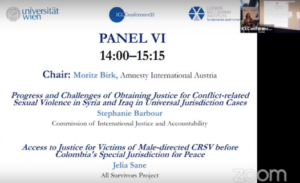
14-15 October: Event
Presentation at Ludwig Boltzmann Institute of Fundamental and Human Rights/Law Faculty of the University of Vienna facilitated conference on International Criminal Law before Domestic Courts
November: Technical advice
ASP reviewed and provided inputs into a report by the International Committee of the Red Cross and Norwegian Red Cross: “That never happens here”, sexual and gender-based violence against men, boys and/including LGBTIQ+ persons in humanitarian settings
27 October: Briefing
Presentation of ASP’s methodology and research findings on improving health responses for male survivors in Afghanistan and follow-up discussion at a briefing for UN Action members, hosted by the Office of the Special Representative of the Secretary-General on Sexual Violence in Conflict and UN Action on survivor-centred health responses for male/diverse SOGIESC victims/ survivors of CRSV.
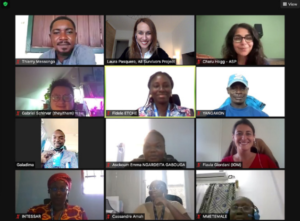
25-26 October: Training
ASP/IOM facilitated training to UNHCR and IOM Sexual and Gender Based Violence and Protection Focal Points in CAR on working with male and LGBTI+ victims/survivors of CRSV.
6-8 September: Training
ASP presented session on preventing and responding to CRSV against boys for NATO child protection focal points.
16 August: Submission
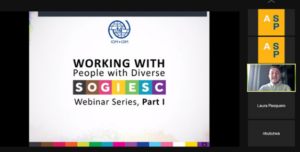
5-6 July: Training
ASP/IOM training for UNAMI, the Iraq National Commission on Human Rights and national NGOs on safe and ethical documentation of CRSV against men, boys and/including LGBTI+ individuals.
28 June – 2 July: Training
ASP participated in NATO’s LANDCOM Gender Week, delivering two sessions on CRSV against men, boys including those with diverse SOGIESC.
18 June: Event
ASP co-facilitated and participated in an event at the UN on inclusive approaches to justice with Justice Rapid Response and the Permanent Missions of Canada, Liechtenstein and the United Kingdom to the UN in New York.
14 June: Submission
Briefing in advance of the UN Security Council Open Debate on Children and Armed Conflict
1-2 June: Training
ASP/IOM training for Afghan Independent Human Rights Commission on safe and ethical documentation of CRSV against men and boys.
3 May: Submission
7 April: Podcast
Improving Health Interventions for Male Survivors of Sexual Violence in Afghanistan
19 March: Report
25 February: Submission
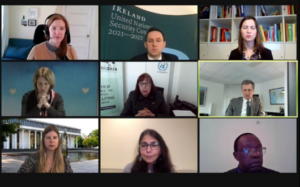
11 February: Event/webinar
Conflict-Related Sexual Violence in Detention: Putting Principles into Action
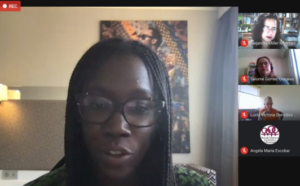
11 February: Briefing
Online briefing on CRSV against men and boys to commissioners and staff of Colombia’s Truth, Coexistence, and Non-Repetition Commission.
February-July: Technical advice
Reviews and inputs into the UK Government’s Preventing Sexual Violence in Conflict Initiative Strategy (published in November 2022).
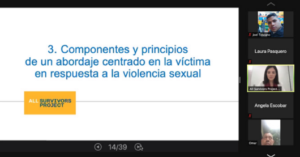
28 January and 23 February: Training
ASP delivered two online capacity-building workshops on advocacy and documentation to male victims/survivors of CRSV in Colombia.
Donors
All Survivors Project would like to thank our generous donors for their contributions in 2021.

Financials
All Survivors Project Foundation
VADUZ



Expenditure by Charitable Objectives
FY 2021 (FY2020)

Board of Trustees and Board of Advisors
Board of Trustees in Liechtenstein
Joachim Theis
Independent Consultant
Philipp Wanger
Company Secretary
Board of Trustees in England and Wales
Keith Burnet
Chair
Benyam Dawit Mezmur
UN Committee on the Rights of the Child
Joachim Theis
Independent Consultant
Megan Hirst
Doughty Street Chambers
Professor Kaveh Shakib
University College London
Board of Advisors
Aryeh Neier
Open Society Foundation
Baroness Helena Kennedy, QC
Mansfield College
Professor Manfred Nowak
The University of Vienna
H.E. Mr. Christian Wenaweser
Permanent Representative of the Principality of
Liechtenstein to the UN
Lara Stemple
Health and Human Rights Law Project, UCLA Law
Nelly Staderini
Médecins Sans Frontières
Lama Fakih
Human Rights Watch
Dean Peacock
Women’s International League for Peace and
Freedom

References[+]
| 1↑ | ASP uses the phrase ‘people with diverse SOGIESC’ to refer to individuals whose sexual orientation, gender identity, gender expression and/or sex characteristics do not conform with heteronormative, socially constructed norms and expectations on gender and sexuality. The term includes individuals who are lesbian, gay, bisexual, transgender and intersex (LGBTI+). ASP also uses the term LGBTI+ where it is most relevant. |
|---|---|
| 2↑ | A briefing based on this research was published in January 2022. |
| 3↑ | Support for the establishment of the Focal Groups was also provided by the gender and differential approach group of the SJP’s Unit of Investigation and Accusation. One Focal Group represents male victims who identify as heterosexual; the other represents those who identify with a diverse sexual orientation. |
| 4↑ | A recording of ASP’s presentation is available at Panel VI | ICL-conference (iclconference21.com) |
| 5↑ | Two briefings based on this research were jointly published by ASP and OSRSG CAAC in late 2022. See Strengthening responses to conflict-related sexual violence against boys deprived of their liberty in situations of armed conflict and Responding to conflict-related sexual violence against boys associated with armed forces and armed groups in reintegration programmes, December 2022. |
| 6↑ | See UN Doc. CCPR/C/TUR/QPR/2, 25 August 2021 |

